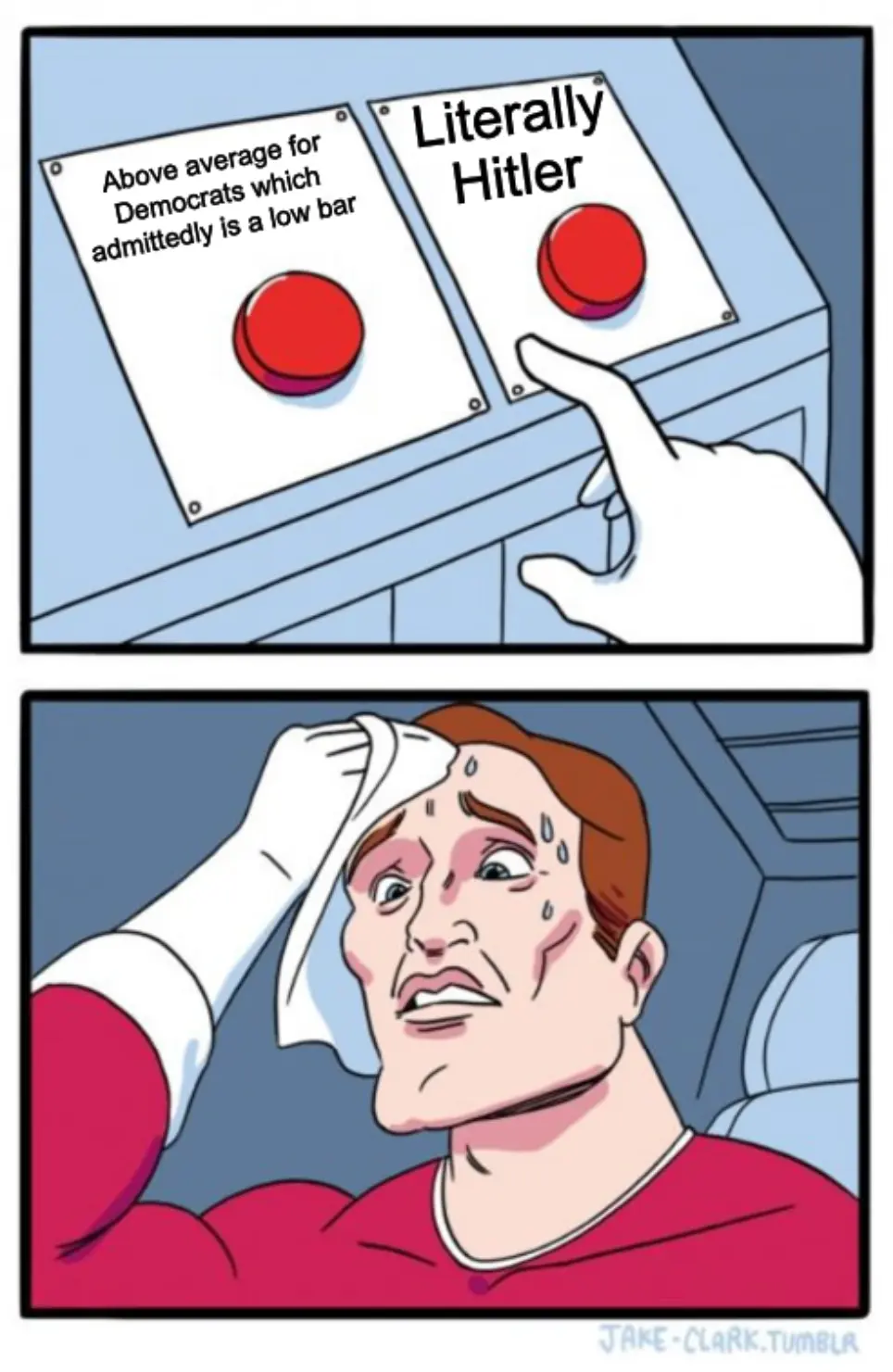this post was submitted on 11 Feb 2024
845 points (89.2% liked)
Political Memes
5596 readers
2104 users here now
Welcome to politcal memes!
These are our rules:
Be civil
Jokes are okay, but don’t intentionally harass or disturb any member of our community. Sexism, racism and bigotry are not allowed. Good faith argumentation only. No posts discouraging people to vote or shaming people for voting.
No misinformation
Don’t post any intentional misinformation. When asked by mods, provide sources for any claims you make.
Posts should be memes
Random pictures do not qualify as memes. Relevance to politics is required.
No bots, spam or self-promotion
Follow instance rules, ask for your bot to be allowed on this community.
founded 2 years ago
MODERATORS
you are viewing a single comment's thread
view the rest of the comments
view the rest of the comments

I don't see it on dictionary.com or Websters. I don't see any problem with adding it as an alternate slang definition, but I feel like it's gonna fall out of fashion before it gets used widely enough to justify adding it to a dictionary. I also don't see how it relates to what I'm saying, since (as far as I know) it's use doesn't come from people not know what, "cap," means.
I mean, it's weird that you keep trying convince me that dictionaries aren't the authority on language, but also incorrectly using, "literally," is acceptable now because it's in a dictionary. It's literally the first thing you said to me, and it directly contradicts what you're saying now.
There's nothing wrong with adding slang to a dictionary, but slang comes and goes quickly, so it's not the best idea to clutter up a language repository with meanings that will be obsolete in less than a decade. Remember that summer kids were saying, "on fleek?" Turns out we didn't need to bother adding, "on fleek," to our dictionaries.
You mentioned Urban Dictionary, "getting shit," but as a slang dictionary, it's not bad. Slang dictionaries are nothing new, and they're very helpful for keeping up with the kind of language changes that you're talking about. Regional vernacular and fad words belong in a slang dictionary; only slang that has proven to stick around, like, "cool," "kid," or "chill," should make their way into a regular dictionary.
Merriam-Websters makes a lot of additions that just shouldn't be in a regular dictionary, and seem like they're made only to get attention. They added, "Bootylicous," in 2004. Nobody says bootylicous anymore. Nobody said it in 2004, that word peaked in 2002 at the latest. But they got a lot of attention that year for adding that word, just like they got a lot of attention last year for adding the incorrect usage of, "literally."
Definitions matter. They're supposed to change over time, but they're also supposed to be rigid enough that people can reference their correct/incorrect meaning. If definitions were meant to be entirely fluid, we wouldn't need dictionaries in the first place. I know you think most people only use dictionaries when they're playing board games, but the truth is they are mostly used in academia, where people need to make sure they're using words properly. That's why adding a common misuse of a word to a dictionary is such a bad idea.
OMFG dude, I know how words are added to the dictionary. I was a English Lit major and a writing tutor. I understand that lexicongraphers believe that their job is simply recording uses, and not creating meanings. I also know that there's an inherent contradiction in that, since they are also creating a repository that others will use to find the meaning of words, so they're creating and influencing that meaning for everyone who uses that repository. Again, the first thing you said to me was that it was OK to use, "literally," as, "figuratively," because it's in the dictionary. You yourself allowed the dictionary authors to change your usage of that word.
I have explained twice now that I think dictionaries do and should include slant meanings. I have also explained the difference between a regular dictionary and slang dictionary like Urban Dictionary or DARE. I never said slang terms shouldn't be in the dictionary, just that every slang usage doesn't have to be recorded in every dictionary. Sorry Oxford didn't have your use of, "Pop," in it, but it's actually kind of understandable that a British dictionary didn't bother to add the Midwestern-American slang for a word that already had 21 entries.